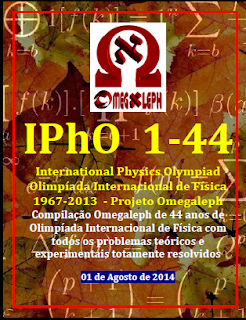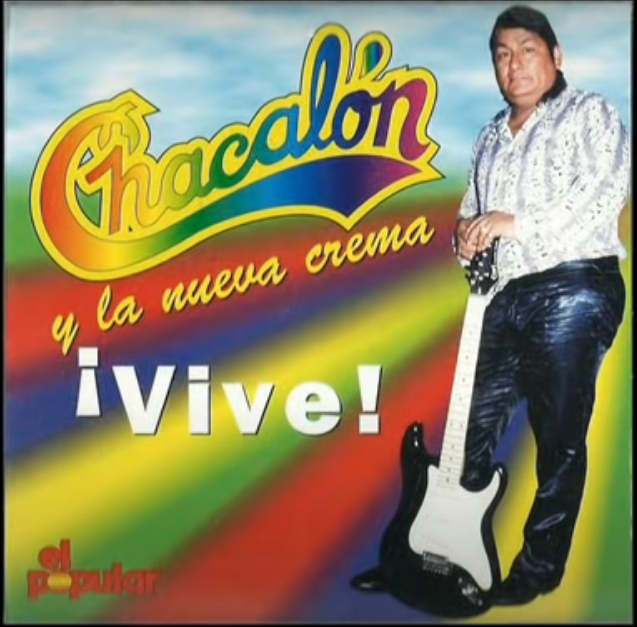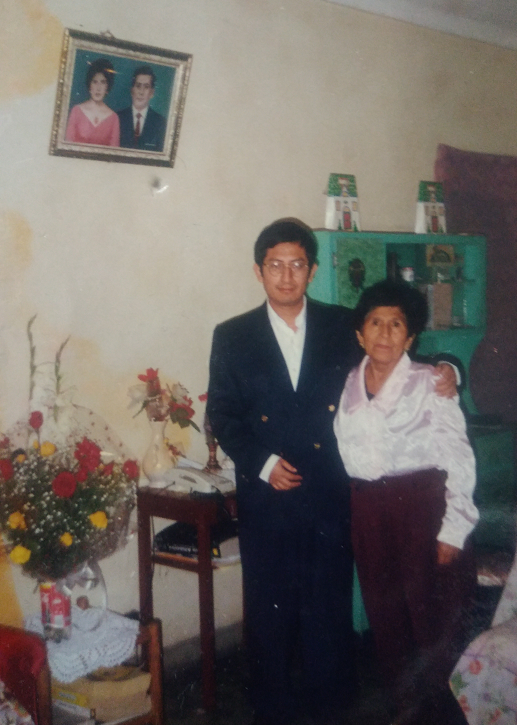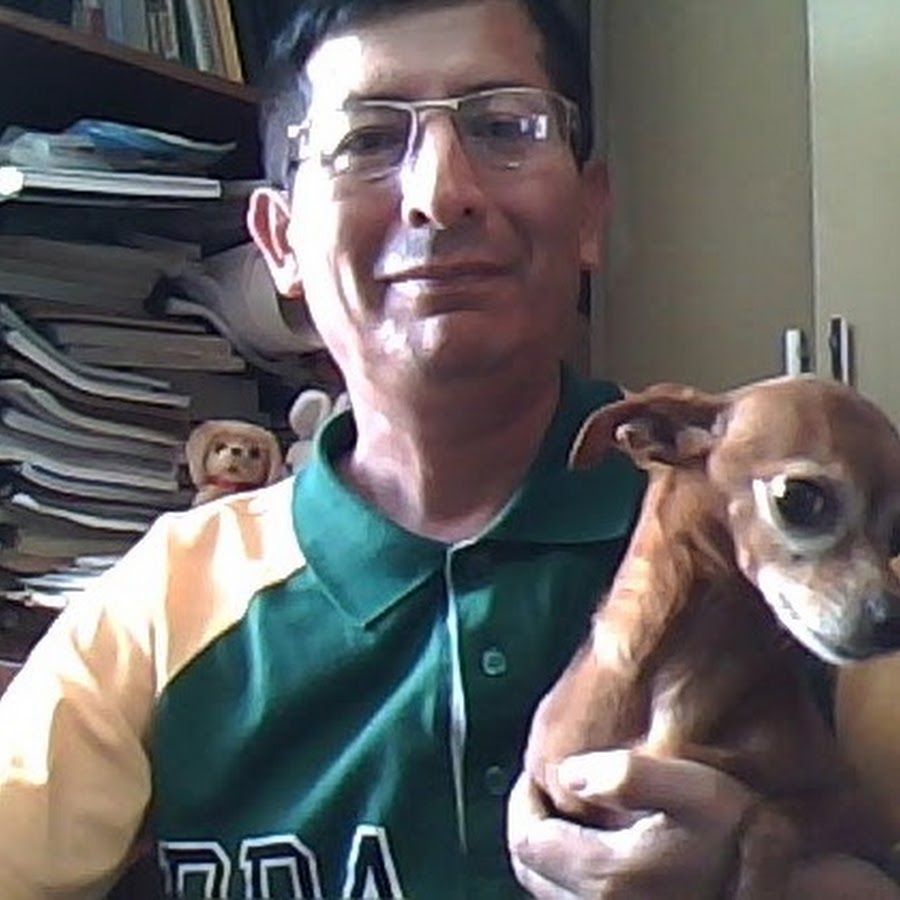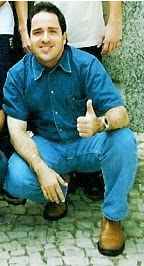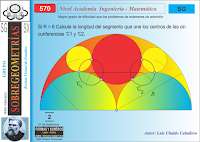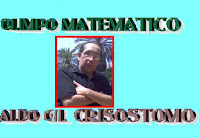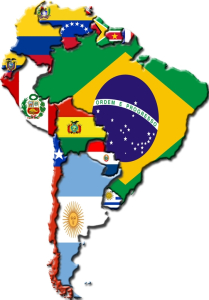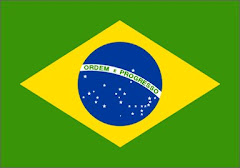quinta-feira, 14 de agosto de 2014
quarta-feira, 13 de agosto de 2014
AWARD CEREMONY FIELDS MEDAL SEOUL 2014 PART1
AWARD CEREMONY FOR THE FIELDS MEDALS DURING THE INTERNATIONAL CONGRESS OF MATHEMATICIANS 2014 IN SEOUL.
THE FIELDS MEDAL IS GIVEN OUT EVERY FOUR YEARS,OFTEN TO MULTIPLE WINNERS WHO SHOULD NOT BE AGED OVER 40.
THE
WINNERS THIS YEAR WERE ARTUR AVILA OF BRAZIL,MANJUL BHARGAVA OF
PRINCENTON UNIVERSITY IN NEW JERSEY,MARTIN HAIRER OF THE UNIVERSITY OF
WARWICK IN BRITAIN AND MARYAM MIRZAKHANI OF STANFORD UNIVERSITY IN
CALIFORNIA.
Seoul ICM 2014 shows South Korean President Park Geun-Hye giving the prize at the awards ceremony for the Fields Medals during the International Congress of Mathematicians 2014 in Seoul.
PROGRAMA TV KOREA EBS
THE FIELDS MEDAL IS GIVEN OUT EVERY FOUR YEARS,OFTEN TO MULTIPLE WINNERS WHO SHOULD NOT BE AGED OVER 40.
THE
WINNERS THIS YEAR WERE ARTUR AVILA OF BRAZIL,MANJUL BHARGAVA OF
PRINCENTON UNIVERSITY IN NEW JERSEY,MARTIN HAIRER OF THE UNIVERSITY OF
WARWICK IN BRITAIN AND MARYAM MIRZAKHANI OF STANFORD UNIVERSITY IN
CALIFORNIA.
Seoul ICM 2014 shows South Korean President Park Geun-Hye giving the prize at the awards ceremony for the Fields Medals during the International Congress of Mathematicians 2014 in Seoul.
PROGRAMA TV KOREA EBS
terça-feira, 12 de agosto de 2014
BRASIL GANHA PELA PRIMEIRA VEZ o 'Nobel' da MATEMÁTICA Artur Avila Is First Brazilian Mathematician to Win Fields Medal 2014- 2014 Fields Medal Winner Artur Avila
http://www.businessinsider.com/2014-fields-medal-winners-2014-8
segunda-feira, 11 de agosto de 2014
La Conjetura débil de Goldbach resuelta por el Matemático Peruano Harald Helfgott.
UMA COLABORAÇÃO DO BLOG AMIGO MATEMATICAS OLIMPIADAS
MEDALHA FIELDS 2014 TEM BRASILEIRO,UM PERUANO,NORTEAMERICANOS E MULHERES (FORTES CANDIDATAS)NA LISTA DE MATEMÁTICOS
Iraniana Maryam Mirzhakani (37), da Universidade de Stanford
A francesa Sophie Morel, actualmente em Princeton
O PERUANO Harald Helfgott
El matemático peruano acaba de hacer historia al hacer pública su demostración de un enunciado de importancia central en teoría de números: la conjetura débil de Goldbach. Este resultado (del que seguramente oiremos más en el futuro) viene a coronar una trayectoria académica de ensueño. A sus 35 años, Helfgott ya se ha hecho acreedor, entre otras distinciones, del Premio Leverhulme, otorgado por la Fundación Leverhulme, del Premio Whitehead, otorgado por la Sociedad Matemática de Londres, y del Premio Adams, otorgado por la Facultad de matemáticas de Cambridge y el St. John’s College. Vive actualmente en París y se desempeña como investigador en el CNRS (Centro Nacional para la Investigación Científica).
O BRASILEIRO ArturÁvila é o mais recente wunderkind do prestigiado IMPA, a Escola de Matemática fundada no Rio de Janeiro por Maurício Peixoto e Jacob Palis nos anos 60, e é Director de Investigação no CNRS. Especialista em Sistemas Dinâmicos.
Provavelmente o candidato cientificamente mais forte é Manjul Bhargava, americano de origem indiana, de Princeton. Bhargava realizou enormes e inesperados avanços num programa de investigação de grande alcance em Teoria de Números conhecido como conjectura de Birch e Swinnerton-Dyer, um dos Problemas do Milénio de um milhão de dólares.
O Congresso Internacional de Matemáticos, maior evento da matemática mundial, que começa nesta quarta-feira (13), em Seul, Coreia do Sul, terá situações inéditas envolvendo o Brasil. Esta será a primeira vez em que quatro matemáticos do Instituto Nacional de Matemática Pura e Aplicada (Impa) participarão como palestrantes, dentre os cerca de 4,5 mil pesquisadores de centenas de países que apresentarão as novidades produzidas nos últimos anos na área. O brasileiro Artur Avila, do Impa, também é cotado para receber uma das quatro Medalhas Fields, reconhecimento equivalente ao Prêmio Nobel da matemática.
O diretor-geral do Instituto Nacional de Matemática Pura e Aplicada (Impa), César Camacho, informou que, desde a criação do evento, em 1897, 14 pesquisadores brasileiros já foram convidados a proferir palestras, mas nos eventos anteriores, os brasileiros nunca haviam passado de dois.
“Em termos comparativos com as melhores instituições do mundo, poucas têm esse número de palestrantes”, comentou ele, ao ressaltar que dos 14 palestrantes brasileiros que já participaram do evento, 13 eram do Impa e um da Pontifícia Universidade Católica do Rio de Janeiro (PUC-RJ). Os quatro pesquisadores brasileiros do Impa que vão participar como palestrantes nesta edição são: Fernando Codá (geometria diferencial), Carlos Gustavo Moreira (sistemas dinâmicos), Mikhail Belolipetsky (topologia) e Vladas Sidoravicius (probabilidade).
A outra novidade será a confirmação do Brasil como sede da edição de 2018. Com isso, o Brasil será o primeiro país do Hemisfério Sul a sediar o evento, que acontece de quatro em quatro anos. O Congresso será no Rio de Janeiro e, para o diretor-geral do Impa, a escolha do Brasil representa um reconhecimento internacional da pesquisa em matemática produzida no país. “A matemática brasileira vem se expandindo de maneira regular nos últimos anos. Ela está tendo um desenvolvimento muito satisfatório e espera-se que em um futuro imediato e a longo prazo esse crescimento venha a ser tão contundente a ponto de colocar o Brasil entre os melhores países do mundo,” comentou ele. “Mas é necessário diversificar as áreas que o Brasil pratica em matemática”, concluiu.
quinta-feira, 7 de agosto de 2014
IPhO 1-44 International Physics Olympiad -Olimpíada Internacional de Física 1967-2013 - Projeto Omegaleph PROFESSOR FABIANO FERREIRA
COMPARTO COM VOCES UMA GRANDE CONTRIBUÇAO DO PROF. FABIANO FERREIRA OLIMPIADAS DE FISICA 1967-2013 PROJETO OMEGALEPH
[IPhO 1967 a 2013] FINALMENTE O LANÇAMENTO! IPhO 1-44 International Physics Olympiad -Olimpíada Internacional de Física 1967-2013 - Projeto Omegaleph - Compilação Omegaleph de 44 anos de Olimpíada Internacional de Física com todos os problemas teóricos e experimentais totamente resolvidos em um VOLUME ÚNICO com 1443 páginas. Uma obra que, segundo valor na Amazon, custaria em torno de US$ 615.00 (cerca de R$ 1.389,00!!!) - Baixe já o seu por apenas R$ 0,00!!!!
LINK
https://www.dropbox.com/s/rn1zt54f6po1fzb/IPhO-Olimpiadas-Internacionais-de-Fisica-1967-a-2013-Totalmente-Resolvidas-English-Version.pdf
Solutions to the problems of the 5-th International Physics Olympiad, 1971, Sofia, Bulgaria The problems and the solutions are adapted by Victor Ivanov Sofia State University, Faculty of Physics, 5 James Bourcier Blvd., 1164 Sofia, Bulgaria Reference: O. F. Kabardin, V. A. Orlov, in “International Physics Olympiads for High School Students”, eds. V. G. Razumovski, Moscow, Nauka, 1985. (In Russian).
C
quarta-feira, 6 de agosto de 2014
ALEX GUNNING wins gold for second time at International Mathematical Olympiad IMO2014
Melbourne teenage mathlete wins gold for second time at International Mathematical Olympiad
A Melbourne student has achieved a perfect score at the International Mathematical Olympiad in South Africa, winning a gold medal for the second year in a row.
Seventeen-year-old maths genius Alex Gunning, who is in year 11 at Glen Waverley Secondary College, was one of more than 500 contestants from 103 countries, all under 20, competing at the prestigious event in Cape Town.
The event consisted of two four-and-a-half-hour exams, each with three questions.
Alex was one of only three students to achieve the perfect score and win a gold medal.
Alex Gunning holding the Australian Flag on stage during his perfect score. Photo: Maths genius Alex Gunning on stage after his
Assinar:
Postagens (Atom)













